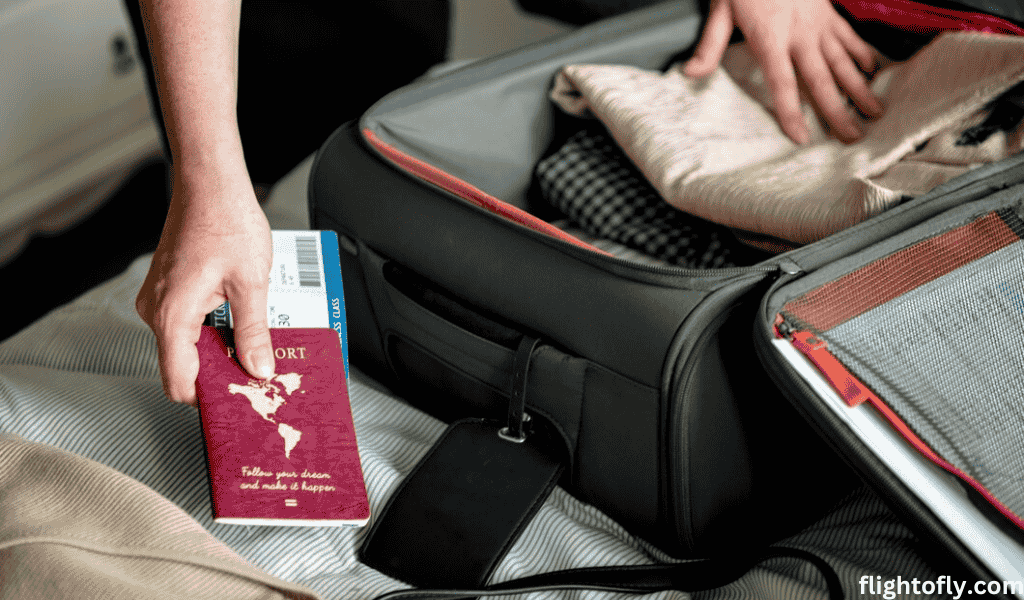
Can I Book a Flight with an Expired Passport?
You might wonder if you can book a flight with an expired passport. The straightforward answer is no because airlines and border authorities usually demand a valid passport for international travel. You can buy a ticket with outdated documents on certain websites, but you will face problems when you try to check in or pass through immigration. Most countries enforce strict rules and will not allow entry if your passport does not meet their validity requirements. This rule protects national security and ensures all travelers meet identification standards.
Traveling without proper documentation causes stress, financial losses, and potential legal issues. You risk being denied boarding at the airport, or you may get stuck in a foreign country if your passport expires midway through your trip. Many travelers overlook these rules because they assume that a slightly outdated passport is acceptable. That assumption is dangerous. You need to renew your passport or apply for a new one before international trips. If you want to avoid losing money on airline tickets, you should address your passport’s expiration date right now.
Check: What Information is Needed to Book a Flight? A Complete Guide
Why Do You Need a Valid Passport?
A valid passport proves your identity and nationality, so border officials will not compromise on these requirements. Many people believe that a passport is only a travel document, but it is also a key form of identification. When you arrive at a foreign airport, immigration officers check your passport to confirm that you have permission to enter. The some critical reasons why you need a valid passport when you travel abroad:
- Identification Abroad
Your passport serves as a global ID. It tells officials exactly who you are, where you were born, and which country issued your citizenship. When you have an expired passport, you cannot show proof of your current citizenship status. That discrepancy raises red flags and might lead to detailed questioning or outright refusal of entry. - Visa Requirements
Many countries require visitors to carry passports valid for at least six months past the arrival date. This window gives authorities assurance that you will leave before your passport expires. If your passport does not meet this rule, you risk an immediate denial of entry or a canceled flight. - Airline Policies
Airlines do not want legal trouble or fines from immigration officials. If you try to check in with an expired passport, the airline might stop you from boarding because they can face penalties for transporting passengers who lack valid documents. This policy applies to international flights, even if your passport is only a few days past its expiration date. - Security Measures
Governments around the world rely on passports to help maintain order and track visitors. An expired passport disrupts this system because it signals outdated information. Authorities want to ensure that every traveler has accurate and valid documentation. - Insurance Coverage
Some travel insurance policies become invalid if you travel on an expired passport. Insurance companies may claim that you violated the terms of your policy by not holding a valid document. This scenario can cause huge financial issues if you encounter medical or logistical emergencies abroad.
Common Misconceptions About Expired Passports
Travelers often hold misconceptions about using expired passports for flights. These misunderstandings cause confusion and potential legal problems. It’s important to know the truth so you can make informed decisions before you book a flight or plan a trip. Here are some popular myths to watch out for:
- “Airlines Do Not Check Expiration Dates”
Some people claim that airlines only want to see a passport, not its validity. This assumption is incorrect. Airlines check every passenger’s passport details during check-in. If they spot an expired passport, they refuse boarding to avoid fines and violations of international regulations. - “A Few Days Expired Is Still Fine”
Even a one-day expired passport can lead to a denial of entry. Immigration officers interpret rules strictly. They do not want exceptions because that sets a bad precedent. Never assume that a grace period exists. If the passport expiration date has passed, you cannot use it for international travel. - “I Only Need a Passport Upon Arrival”
You need a valid passport for both departure and arrival. Airline staff will check your passport when you leave your home country. Immigration officers at your destination will do the same upon arrival. Both steps matter. If your passport is expired at either stage, you will face major obstacles. - “You Can Use Other Government IDs Abroad”
Some people think a driver’s license or national ID can replace a passport overseas. That belief is false. These IDs may work for domestic flights, but they usually fail at immigration checkpoints in foreign airports. Always carry a valid passport if you plan to cross international borders. - “Renewal Takes Too Long”
Passport renewal can take a few weeks under standard procedures. However, many countries offer expedited options if you pay additional fees. You can plan or request faster service. It’s easier to renew your passport than to risk losing a flight or facing legal issues.
Consequences of Trying to Travel with an Expired Passport
Trying to travel with an expired passport can lead to several negative outcomes. You may waste money, miss your vacation, or face legal penalties. Let’s discuss some of the most common and serious consequences travelers face when they ignore passport expiration rules:
- Boarding Denial
Airline staff has the final say when you check-in. If they spot an expired passport, they will refuse to issue a boarding pass. This situation ruins your travel plans because you cannot even reach the plane, let alone travel overseas. You often lose non-refundable airline ticket costs. - Refusal of Entry
Even if you manage to board, immigration officers at your destination will check your passport. They can refuse entry on the spot if your passport is expired. That denial may leave you stranded or force you to return on the next available flight at your own cost. - Fines or Penalties
Certain countries punish travelers who enter with invalid documents, whether through ignorance or negligence. You could receive a fine, face temporary detention, or deal with complicated legal processes. Such penalties can extend your travel nightmare. - Financial and Emotional Stress
Imagine rushing to the airport, only to learn that your passport expired last week. You can’t board your flight, and you watch your vacation slip away. You might have paid for hotels, tours, and other non-refundable reservations. This scenario leads to both financial losses and emotional distress. - Travel Insurance Issues
Many travel insurance policies require travelers to hold a valid passport. If your passport is expired, your insurer could deny coverage for claims. That situation leaves you unprotected in emergencies such as medical events, canceled flights, or lost baggage.
How to Renew Your Passport Quickly and Avoid Travel Headaches
Renewing your passport before booking your flight is the safest approach. You might worry about long queues, complicated forms, or delayed processing, but many countries have streamlined passport services. You can often choose expedited options if you need a quick turnaround. Consider the following guidelines:
- Check Your Current Passport’s Validity
Look at the expiration date on your passport. Some countries require six months of validity beyond your intended departure date. Others might require less time, but six months is a common rule of thumb. If your passport is close to expiring, start the renewal process right away. - Gather the Necessary Documents
You usually need your old passport, recent passport photos, a completed application form, and proof of identity. Check your government’s official website to see the exact requirements. Organize these documents carefully to avoid delays during application submission. - Decide on the Service Level
Standard passport renewal might take four to six weeks, depending on your location. If you need faster service, you can often pay an extra fee for expedited processing. This option can reduce the waiting period to just a few days or a couple of weeks. - Submit Your Application
Many countries now allow online applications or appointment-based applications at passport offices. This method speeds up the process. If you rely on mail-in applications, factor in shipping times. Always track your application so you know its progress. - Follow Up and Stay Organized
Keep copies of every document you submit, including your payment receipts. Stay alert for any notifications or requests from the passport office. Respond to them promptly to avoid further delays. Once you receive your new passport, check its details and store it in a safe location.
Can You Book Domestic Flights with an Expired Passport?
The rules for domestic flights differ from international travel. You can often use other forms of government-issued ID, such as a driver’s license, when you fly within your home country. However, an expired passport may not help if your local airport security insists on valid identification. Let’s clarify domestic flight requirements:
- Alternative IDs for Domestic Flights
Many countries permit you to use driver’s licenses, national ID cards, or other government IDs for domestic travel. Check the transportation security guidelines in your area to see which documents are valid. If you lack a driver’s license, you can often apply for a state or national photo ID. - Expired Passport as a Backup
Some airport security agents accept an expired passport as a secondary form of identification. This approach is not guaranteed. The rules vary, and security officers sometimes reject expired documents. Do not rely on an expired passport for domestic travel unless you have no other option. - Check Local Regulations
Airlines and airport security agencies update their guidelines from time to time. Always read the latest official information before you book a domestic flight. Relying on outdated rules can cause unexpected problems on your travel day. - Safety and Efficiency
Domestic travel still involves security checkpoints. Officials want to verify your identity to ensure safe flights. Provide a valid ID to speed up security checks. That approach minimizes delays for you and everyone else in line. - Plan for Emergencies
If you need to fly on short notice and your only ID is an expired passport, speak with the airline and airport security in advance. They might suggest temporary or emergency solutions. However, this process involves extra paperwork and time, so start as soon as possible.

Practical Tips to Stay Organized and Renew on Time
Managing your passport efficiently prevents costly mistakes and last-minute panic. Use these practical tips to ensure you never face the dreaded “expired passport at the airport” scenario:
- Set Calendar Reminders
Mark your passport expiry date on your digital calendar. Set alerts a few months before the deadline. Early reminders prompt you to renew before you book flights or arrange vacations. - Track All Family Members
If you travel with family, monitor each person’s passport expiration date. Children’s passports often expire sooner than adult passports because children’s validity periods are shorter in many countries. - Keep Digital and Physical Copies
Scan your passport and store digital copies in secure cloud locations. Keep physical copies at home. If your passport is lost or stolen, these copies help authorities verify your identity and expedite a replacement. - Bundle Renewals with Other Tasks
Combine your passport renewal with other errands such as updating driver’s licenses or paying travel insurance. This approach keeps your travel-related documents current and minimizes the risk of overlooking critical updates. - Research Visa Requirements Early
Many travelers forget that certain countries require a visa or Electronic Travel Authorization (ETA). Combine your passport renewal with visa research. Complete the necessary applications on time, so you don’t scramble at the last minute.
Table: Passport Renewal Timeline vs. Potential Risks
Use the table below to understand how early or late renewal can affect your travel plans. This overview highlights the timeline for passport renewal and the associated level of risk.
| Renewal Timeframe | Action to Take | Potential Risks |
| 6+ Months Before Expiry | Start the process or at least prepare documents | Very low risk of delays, ample time to fix errors |
| 3-6 Months Before Expiry | Begin renewal as soon as possible | Moderate risk if high travel season causes extended processing |
| 1-3 Months Before Expiry | Seek expedited service if necessary | Higher risk of delays, possible last-minute changes in travel plans |
| Less Than 1 Month | Pay for priority renewal or walk-in appointments | Very high risk of missing flights if there are unexpected hold-ups |
| Already Expired | Cannot use a passport, must renew immediately | Almost certain denial of boarding and potential legal issues |
This chart helps you visualize the best times to renew and how cutting it close can lead to frustration. Always aim for the six-month mark to reduce stress and maintain flexibility in your travel schedule.
Emergency Passport Services for Last-Minute Travel
Sometimes unexpected events force you to travel on short notice. You might need to visit a sick relative, attend an urgent business meeting, or handle a personal crisis in another country. If your passport is expired or close to expiring, you can check if your government offers emergency passport services. Here is how you can approach last-minute renewals:
- Contact Your Local Passport Authority
Call or visit the official passport office in your city. Explain your emergency and ask about urgent processing. You may need proof of your emergency, such as a medical certificate or official letter. - Pay Extra Fees
Emergency passport processing usually costs more than standard or even expedited options. The office prioritizes your case, so you pay for the privilege of immediate service. Keep all your receipts for potential reimbursement if your insurance or employer covers it. - Prepare Supporting Documents
Officers will request evidence to confirm your emergency. They might ask for your travel itinerary or flight confirmation. They may also need official letters that explain why you must travel urgently. Submit these documents in person to speed things up. - Be Flexible
Even emergency services can take a few days. Plan around the earliest availability. You may need to adjust your flight dates if the passport office cannot process your application in time. - Check Validity Requirements
If you receive a limited-validity passport or emergency travel document, it might expire sooner than a normal passport. Check if your destination country accepts it. Some nations have stricter regulations. You need to confirm that your travel route and airline both allow your emergency passport.
How to Handle Airline and Hotel Bookings with an Expired Passport
You might already have airline tickets or hotel reservations, only to realize that your passport is expired. This situation causes panic. Here’s what you can do to minimize financial and logistical damage:
- Call the Airline Immediately
Explain that you discovered your passport has expired. Ask if they offer flexible date changes or cancellations. Some airlines provide partial refunds or waivers under certain conditions, especially if you act quickly. - Look for Expedited Passport Options
Start the renewal process right away. Show the airline proof that you are renewing your passport. While they won’t guarantee a spot on your original flight, some airlines allow you to push back your departure date for a fee. - Contact Hotels and Tour Operators
Many hotels let you shift your reservation to a later date if you explain your circumstances. Some tour operators might also reschedule activities or excursions. Clarify any fees so you can adjust your budget accordingly. - Keep All Proof of Communication
Save every email, chat, or phone record regarding your cancellation or rebooking. If you buy travel insurance, these documents will help when you file a claim for refunds or missed tours. - Avoid Booking Non-Refundable Deals
Non-refundable flights and hotels can be cheaper, but they offer no flexibility if passport issues arise. If your passport is close to expiry, you risk losing your entire payment. Choose refundable or flexible booking options until your renewed passport arrives.
Conclusion
You cannot successfully book or board an international flight with an expired passport. Many travelers waste money on plane tickets or rush to the airport without checking passport validity, only to face rejections and heavy financial losses. This simple oversight leads to emotional distress, logistical nightmares, and potential legal complications. Airlines have strict policies against expired passports, and most countries require at least six months of validity beyond your departure date.
Always renew your passport well before you book a flight. Check local regulations to see if you need expedited or emergency passport services. Keep track of your family members’ passport expiry dates. Remember to store digital and physical copies of your passport to streamline any replacement process. If you stay organized, follow travel guidelines, and keep your passport valid, you will enjoy stress-free journeys around the world. With the right preparation, you can minimize hassles and focus on the excitement of exploring new destinations.
All Categories
Recent Posts
Best Time to Book International Flights in 2026
How to Avoid Airline Change Fees in 2026 (Smart Traveller Guide)
Tags





